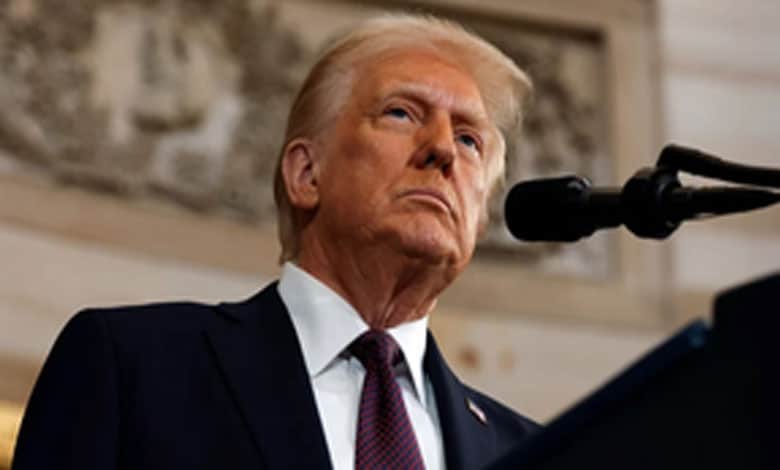Trump mentions Taiwan, South Korea while saying America lost chip business
Former U.S. President Donald Trump has criticized the CHIPS and Science Act, arguing that the United States lost its semiconductor business to foreign countries, primarily Taiwan and South Korea.

Washington: Former U.S. President Donald Trump has criticized the CHIPS and Science Act, arguing that the United States lost its semiconductor business to foreign countries, primarily Taiwan and South Korea.
During a press availability at the White House, Trump asserted that the chip industry, once dominated by American entrepreneur Andrew Grove (former Intel CEO), has shifted overseas, calling it a failure of past U.S. administrations.
Table of Contents
“We gradually lost the chip business, and now it’s almost exclusively in Taiwan. They stole it from us. They took it from us,” Trump said, highlighting that only a small portion remains in South Korea.
Trump Renews Criticism of CHIPS and Science Act
Signed in 2022 by President Joe Biden, the CHIPS and Science Act was designed to boost domestic chip manufacturing through subsidies and incentives. However, Trump called it a “tremendous waste of money”, urging its removal.
“It’s hundreds of billions of dollars, and it’s just a waste of money,” he stated.
He further claimed that companies face difficulties qualifying for subsidies, attributing the challenges to race and gender-based criteria.
Taiwan & South Korea’s Investments in U.S. Chip Industry
Despite Trump’s remarks, Taiwan Semiconductor Manufacturing Co. (TSMC) has committed $100 billion to build advanced chip production facilities in the U.S., in addition to its $65 billion investment in Arizona.
Similarly, Samsung Electronics and SK hynix, South Korean tech giants, have received CHIPS Act grants to support their U.S.-based semiconductor investments.
Also Read: Gautam Adani Hosts Nine Inspiring Women Envoys in India
Trump, however, emphasized that during his tenure, foreign chipmakers came to the U.S. without financial incentives, attributing their decisions to tariffs and pro-business policies.
“I didn’t give foreign companies 10 cents, but they came because of tariffs. And they liked the results of the election because they knew I was pro-business and pro-jobs,” he claimed.
Global Impact of Trump’s Comments
Trump’s statements have drawn keen attention in South Korea and Taiwan, both key players in the global semiconductor industry. As the 2024 U.S. election approaches, his stance on trade policies, technology investments, and economic nationalism is expected to be a focal point of debate.
Stay tuned for more updates on the global semiconductor industry, U.S. trade policies, and the CHIPS Act.
